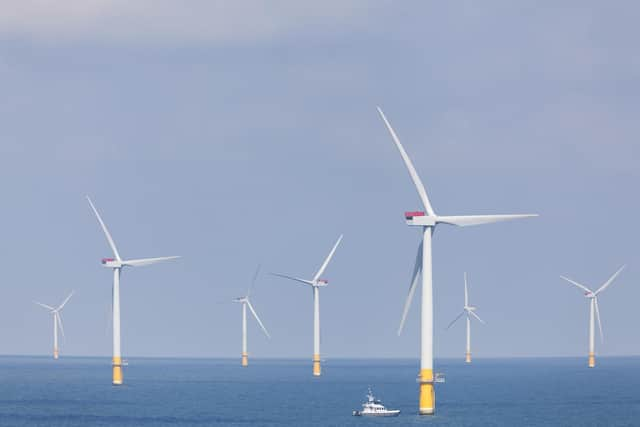Scotland can lead industrial decarbonisation says new research


The report The UK and the energy transition: Leading the way? analysed different markets including solar PV, onshore wind, offshore wind, low-carbon hydrogen and carbon capture utilisation and storage (CCUS).
Maximising advantages
The UK and the energy transition: Leading the way? points out that Scotland has several advantages when decarbonising its energy systems, including the geological storage of carbon under the North Sea’s seabed. Findings in this report also suggest that existing pipelines in Scotland could be repurposed to transport carbon emissions from industrial clusters into depleted oil and gas fields as well as aquifers.


The report recommends that the development of a holistic CCUS economy in Scotland and the rest of the UK will generate significant opportunities for Britain’s energy supply chain, enabling the retention and creation of skilled jobs.
The research also offers an insight into international progress, drawing from lessons learnt elsewhere. It points out that in comparison the UK has the advantage of an established investment infrastructure, boasting a strong reputation as a friendly environment for energy and infrastructure investment - thanks to its robust rule of law and the transparency of its legal system. Also, the UK's geographical location supports offshore (including floating) wind and the ambitious domestic climate targets give the UK a head start.
Overcoming barriers
Although The UK and the energy transition: Leading the way? outlines that Scotland and the rest of the UK are leading the transition to some degree, it also identifies several barriers to decarbonising the energy system. There is a need to strengthen domestic supply chains and, especially in England, engage with local communities to roll-out renewable technologies such as onshore wind and solar. The research also shows the UK needs to exploit first-mover advantage for low-carbon hydrogen and CCUS by providing clarity on business-friendly models for new technologies, allowing industries and investors to make appropriate investment decisions. The authors suggest focus also needs to be given to research and development to support domestic manufacturing and the workforce.


Ever increasing power prices forecasted up to 2044 underline the need to build confidence for investment in renewable energy and deliver a stable and secure future. The new findings come at a time when reducing carbon emissions, the cost of living, and improving energy security are all top policy priorities.
Figure 1: Forecasted UK power prices, 2019-2044
Other areas the report outlined as key development areas were:
- Boosting international coordination and developing partnerships: A more coordinated policy particularly amongst the US, the UK and the EU would enable these countries to tackle current threats to energy supply. The wealth of knowledge across hydrogen, CO2 storage and other developing energy areas can be shared to progress technologies across the globe.
- Streamlining consenting process for renewables: The simplification of the offshore wind planning processes in the Energy Security Strategy, reducing consenting time from up to 4 years down to 1 year, represents an important step towards a more streamlined market. However, onshore wind received less attention with limited detail and less ambitious proposals.
- Ringfencing the crisis of energy suppliers: The UK government should support businesses struggling because of the energy crisis, demonstrating they recognise the complexity of investment and risk-taking in the energy sector and help to rebuild confidence.
Moving goal posts
Richard Cockburn, an Edinburgh based Partner and Head of Energy at Womble Bond Dickinson, said: “Throughout the research period for this report, new variables continued to be thrown into the mix. The impact of the invasion of Ukraine, gas supply concerns and new legislation and political strategies were just some of the developments, which are typical of the pace at which the energy landscape changes. It’s tricky making decisions in an environment which is constantly in flux – which is why this data and insight will hopefully be invaluable for a market currently in a period of change.
“The report takes a global view and the research has made it increasingly clear that the journey to net zero must be a collaborative one. Whilst the UK is well placed to take the lead in many areas of transition, the right policies need to be in place to make this a reality.
“The UK is a world leader in areas such as offshore wind - where the UK successfully ran its Offshore Wind Leasing Round 4 and its ScotWind process, which together could create up to an additional 33GW of offshore wind capacity.”
Naomi Potter, Lead Research Analyst at Cornwall Insight, said: "This research explores the advantages the UK holds as it pushes forward with the decarbonisation of its economy in the coming decades. The UK is already a global offshore wind leader, has some clear competitive advantages in the development of floating technologies at scale, and is paving the way to utility-scale low carbon hydrogen and CCUS.
“There are critical challenges facing the country as it pushes forward with its decarbonisation ambitions. These challenges are not insurmountable, however, and building on its strong foundations, the country can make significant strides towards environmental sustainability and energy independence, while unlocking investment opportunities."
The UK and the energy transition: Leading the way? includes quotes from interviews with experts at DNV, EDF Energy, Oxford Institute of Energy Studies, Lightsourcebp, ABN Amro, Greencoat Capital, NECCUS, Abundance Investment, Global Infrastructure Investor Association, Statkraft and others.